Can Cats Eat Coriander? A Safe Herb for Your Feline
- 12 Mar 2025 13:54
If you've ever wondered whether you can share some of your fresh coriander with your cat, you're not alone! Many cat owners are curious about the safety of various herbs and spices, especially when it comes to herbs like coriander (also known as cilantro). While some herbs can be harmful to cats, coriander is generally safe for most cats in small amounts. However, it’s important to understand how it might affect your cat and whether there are any precautions to consider.
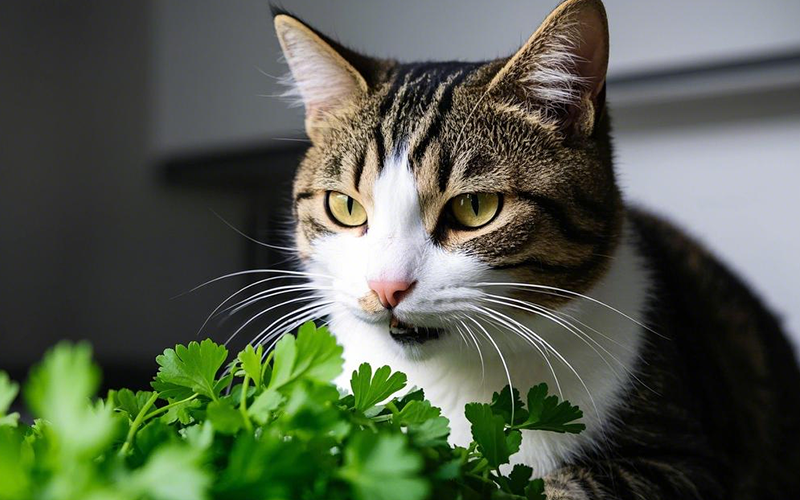
Is Coriander Safe for Cats? 🌿
Yes, coriander is non-toxic to cats, and in small amounts, it can even be beneficial for them. This herb is often used in human food and as a garnish, and it’s safe for cats to eat in moderation. Cats might be curious about the taste or smell of coriander, especially if it’s fresh or growing in your garden.
Potential Benefits of Coriander for Cats 🐾
Although coriander doesn't offer the same level of health benefits as some other herbs or supplements, it can still provide some nutritional value when consumed in small quantities. Here are a few potential benefits of coriander for cats:
Digestive Aid 🐱
Coriander contains antioxidants and compounds that can promote digestive health. In small amounts, it may help with mild stomach upset or support overall digestive function.
Rich in Vitamins and Nutrients 🍃
Coriander contains vitamins like A, C, and K as well as minerals such as iron and potassium. While cats don’t need these nutrients in large quantities, a tiny amount of coriander might provide some extra micronutrients.
Freshens Breath 😺
Just like for humans, fresh herbs can sometimes help freshen a cat's breath. If your cat enjoys coriander, it could serve as a natural breath-freshening treat.
Risks and Considerations 🛑
While coriander is generally safe for cats, there are a few things to consider:
Moderation is Key ⚖️
Like with all treats, moderation is important. Too much of any herb, including coriander, can cause upset stomach, diarrhea, or vomiting in some cats. Offer it in very small amounts—just a leaf or two—and see how your cat reacts.
Pesticides and Chemicals 🌿
If you’re giving your cat fresh coriander from your garden, make sure it's pesticide-free. Many store-bought herbs are treated with chemicals, so it’s a good idea to wash them thoroughly before offering them to your cat. If you're growing coriander yourself, consider growing it organically to avoid the risk of pesticide exposure.
Food Sensitivities 🐱
Some cats may have food sensitivities or mild allergic reactions to certain herbs. If your cat shows signs like itching, swelling, or upset stomach after eating coriander, stop offering it and consult your vet.
Not a Substitute for a Balanced Diet 🥣
While coriander can be a nice addition to your cat's diet as a treat, it shouldn't replace any essential nutrients your cat gets from a balanced, high-quality cat food. Cats are obligate carnivores, meaning they need animal-based protein to meet their nutritional needs.
How to Offer Coriander to Your Cat 🌱
If you want to treat your cat with coriander, here’s how to do it safely:
Fresh leaves: Offer small amounts of fresh coriander leaves to your cat as a treat.
Dried coriander: You can also sprinkle a very small amount of dried coriander on top of your cat’s food, but be mindful of the quantity. Too much dried herb might be overpowering for your cat’s sensitive taste buds.
Growing coriander: If you grow coriander at home, you can allow your cat to nibble on the fresh leaves from the plant. Just make sure they aren’t overindulging.
What to Do If Your Cat Eats Too Much Coriander 🚨
If your cat consumes a large amount of coriander or shows any unusual symptoms like vomiting, diarrhea, or lethargy, it’s a good idea to contact your vet. Most cats won’t eat excessive amounts of herbs, but if they do, you should monitor their behavior and ensure they are drinking water and eating normally. In most cases, a small amount of coriander won’t cause serious harm, but it’s always better to be cautious.
Can Cats Eat Other Herbs? 🌿
While coriander is safe in moderation, it’s important to know that not all herbs are safe for cats. Some common herbs and spices, such as garlic, onions, chives, and oregano, can be toxic to cats. Always research any herbs before giving them to your cat, and if in doubt, consult your vet.
PettureX: Your Pet Health Assistant 🐾
If you’re unsure about whether a particular food or herb is safe for your cat, PettureX is a reliable, AI-powered pet health assistant available 24/7 to provide guidance on your cat’s diet and health. PettureX can answer any questions you have about your cat’s nutrition and well-being, helping you keep your furry friend happy and healthy.
Conclusion
Can cats eat coriander? Yes, coriander is safe for cats in small amounts and can even offer some mild health benefits. It can be a fun treat for your cat to nibble on from time to time, especially if they enjoy fresh herbs. However, always offer it in moderation and be cautious of any potential food sensitivities. If you’re ever unsure about your cat’s diet or need more advice on what’s safe for them to eat, remember that PettureX is here to help you make the best choices for your cat’s health and happiness. 🐱💚
Related
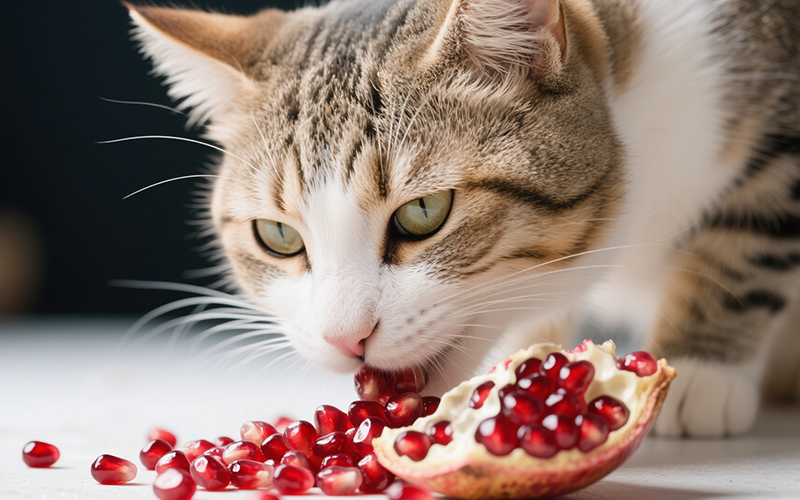
Pomegranate Peril: Can Cats Eat the Seeds Safely? A Vet-Reviewed Guide
- 25 Apr 2025
Prickly Problem: Can Cats Eat Pineapple Leaves Safely? A Vet-Reviewed Risk Analysis
- 25 Apr 2025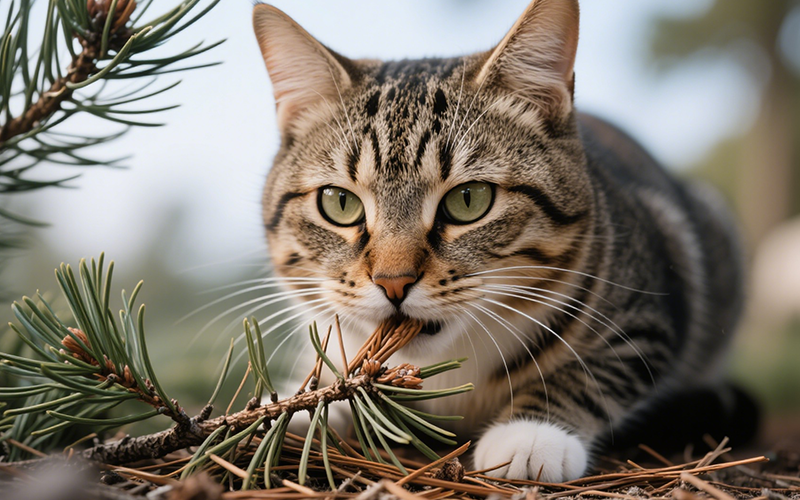
The Prickly Truth: Can Cats Eat Pine Needles Safely? A Guide for Concerned Owners
- 24 Apr 2025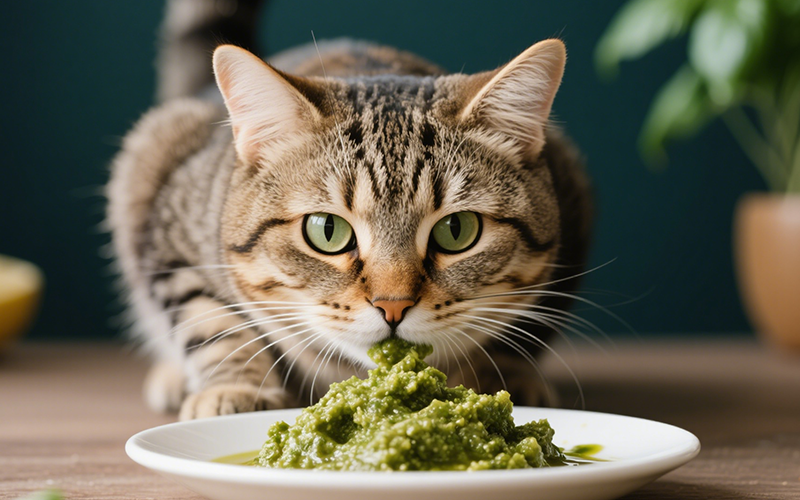
Pesto & Paws: A Dangerous Mix? Can Cats Eat Pesto Safely?
- 24 Apr 2025
Persimmons and Paws: Can Cats Safely Eat This Autumn Fruit? A Vet-Reviewed Guide
- 23 Apr 2025
Nutritional Yeast for Cats: Savory Sprinkle or Health Hazard? A Vet-Reviewed Guide
- 23 Apr 2025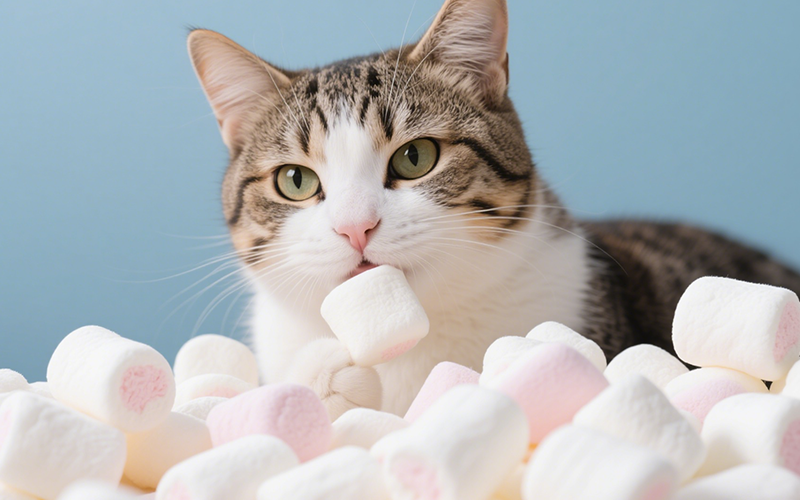
Marshmallows and Cats: A Puffy Problem? Why Vets Say No to This Sugary Snack
- 22 Apr 2025
Kefir for Kitties? A Veterinarian-Reviewed Guide to Safety, Benefits & Risks
- 22 Apr 2025
The Burning Question: Can Cats Eat Jalapenos? A Comprehensive Safety Guide
- 21 Apr 2025
Cool Temptation: Can Cats Eat Ice Cream Safely? The Vet-Backed Truth
- 21 Apr 2025
